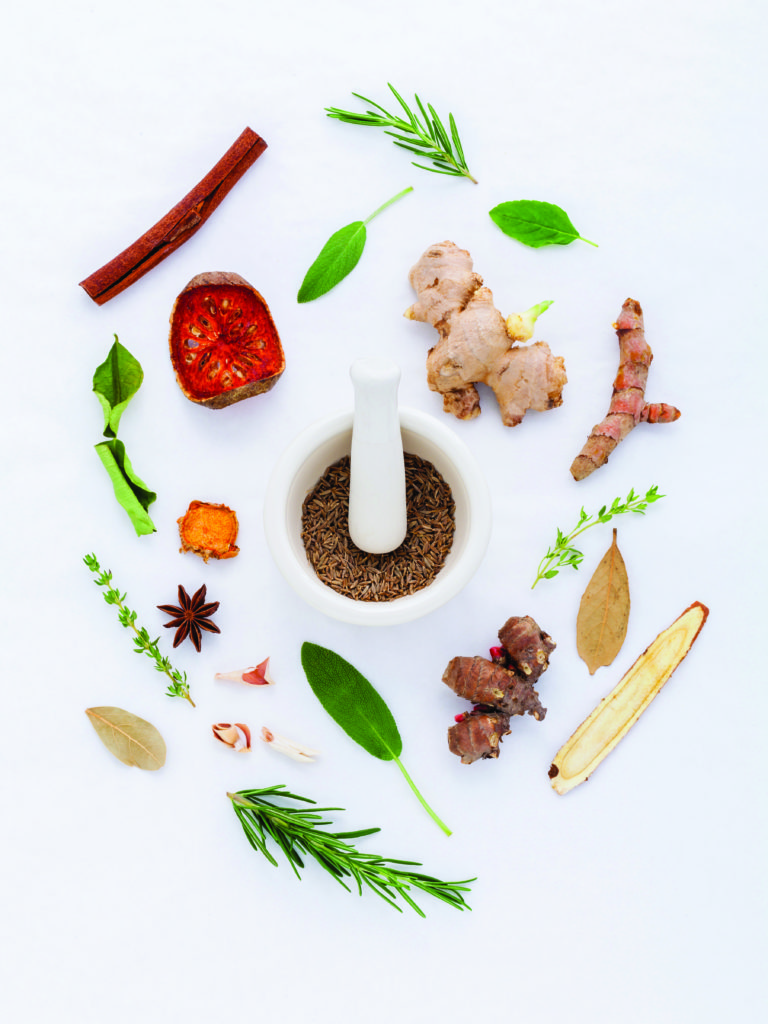
By Dr. Frank Lipman
As a culture, we have become used to popping antibiotics with the first signs of a cold, especially during the winter. Not only does this add to the epidemic of antibiotic-resistant superbugs, but antibiotics don’t kill viruses anyway—they kill bacterial infections, so taking them for viral ills like colds and flu is a waste, and a potentially life-threatening one at that.
So, instead of popping pills, pop some good food, herbs and spices. You can minimize the need for antibiotics by lacing your diet with foods that have natural antibiotic properties. Doing so will not only boost overall health, but will also help strengthen immunity, balance the good and bad bacteria in your gut (where 70 percent of your immune system is), and give you a better shot at fighting off superbugs should they come knocking.
Here are seven delicious and healthy foods and spices that are easy to work into your diet:
Fermented Foods
Tangy fermented foods deliver plenty of health-boosting protection to help make you more resilient and better able to repel viral and bacterial pathogens. When you eat fermented foods, you’re fortifying your gut with probiotics—those good bacteria that boost the health of the belly, protecting it against the organisms that can make you sick. They help balance gut bacteria and stomach acids, release enzymes to ease and improve digestion, and make it easier for your body to extract and absorb more nutrients from the foods you eat.
Medicinal Mushrooms
Used for thousands of years to promote well-being and longevity, medicinal mushrooms also help to strengthen the immune system, lower inflammation, prevent disease, and give you more energy. My four favorite mushrooms for immune support are turkey tail, reishi, cordyceps and chaga. If you’re looking to get the most out of your medicinal mushrooms, your best bet may be to eat a few types of them together, or find a supplement that combines a number of these mushrooms in one formula, as they can have a synergistic effect when combined.
Ginger
Fresh raw ginger is another good-for-you food that has an antibiotic effect on food-borne pathogens. While not a cure-all, some fresh ginger eaten before meals can offer an extra layer of protection from such food-borne illnesses as salmonella and listeria. That added precaution can be a lifesaver, particularly when traveling and eating questionable or unusual foods, or dealing with indigestion.
Garlic
Chopped, crushed or sliced, raw garlic is a powerful, pungent and delicious medicinal food with known antiviral, antifungal and antibiotic properties that have helped mankind fend off flu and cold viruses for thousands of years. To get the best of what garlic has to offer, crush a few cloves and let them sit for 10 to 15 minutes to aid the release of additional health-boosting chemical compounds.
Turmeric
This is probably my favorite spice because it has so many beneficial effects. Turmeric contains curcumin, which is best known for its anti-inflammatory effects, but it also has powerful antiviral, antibacterial and antitumor properties. In short, turmeric fights for your health on multiple levels. You can sprinkle it on salads and eggs, or mix it into soups, smoothies, and other hot or cold beverages. It’s pretty versatile. And if you are not a fan of it in your food, it’s widely available in supplement form now. Just remember to take it with fat for better absorption.
Extra-Virgin Coconut Oil
A tasty antimicrobial and antifungal food, extra-virgin coconut oil (EVCO) contains the all-powerful lauric acid. The body converts lauric acid into monolaurin, which helps smack down certain types of viruses and pathogenic bacteria. Try adding EVCO to smoothies for both its extraordinary antimicrobial effects and delicious tropical flavor. In addition, it’s also great for brain health, so dig in. To cook with EVCO, go with a moderate heat (up to the smoke point of about 350 degrees), and always buy organic and unprocessed versions of the oil to avoid chemical solvents, preservatives and additives.
Honey
Finally, honey: It’s one sweet and delicious medicinal food that has stood the test of time. Roman soldiers used to slather honey on battle wounds to prevent infection. It is thought to have been used as far back as the Stone Age as both a food and a medicine. Known for its antibacterial, antifungal and antiviral properties, honey is also loaded with health-supportive antioxidants. Just make sure it’s raw and don’t use too much, because of its high sugar content.
Frank Lipman, MD, is a Functional Medicine Physician and New York Times bestselling author. drfranklipman.com





